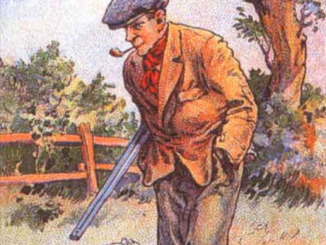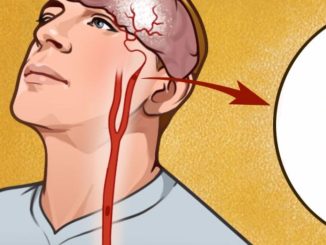In an emotional story that has resonated with parents worldwide, a mother shares her experience of how a simple, loving gesture left her once-healthy baby girl with life-altering brain damage. The cause? A kiss on the mouth. This story serves as a reminder of the importance of protecting newborns from the health risks that can come from exposure to certain viruses. Here, we’ll explore the details of this case, the medical science behind it, and the precautions parents can take to safeguard their babies.
A Mother’s Heartbreaking Experience: The Impact of a Kiss

Breelyn’s mom recounts how her baby girl was born healthy and vibrant. Just two days after her birth, however, someone who was thrilled to meet the new arrival gave her a kiss on the mouth. While the act was meant to be affectionate, it quickly turned tragic. Shortly after the kiss, Breelyn began showing signs of illness, such as excessive sleepiness and a lack of interest in feeding.
- Warning Signs: Breelyn’s mother became concerned when she had to wake her newborn for feeds, a behavior that was unusual and unsettling. Within two weeks of that initial kiss, Breelyn began suffering from seizures.
This seemingly harmless kiss had introduced a virus that would change Breelyn’s life forever, leaving her family devastated and urging them to warn others about the potential dangers of close contact with newborns.
Understanding HSV Encephalitis: The Hidden Danger
The kiss that Breelyn received transmitted the herpes simplex virus (HSV), specifically causing HSV encephalitis—a rare but serious condition in which the virus infects the brain. HSV is commonly associated with cold sores and can be spread through skin-to-skin contact. While it may only cause mild symptoms in adults, for infants, the virus can be deadly.
- How HSV Spreads: HSV is passed through direct contact with infected bodily fluids or lesions. A person with an active cold sore, even if small or healing, can transfer the virus through a kiss or even a gentle touch.
- Impact on Infants: Newborns have fragile immune systems and are unable to fight off infections as effectively as adults. In Breelyn’s case, the virus spread rapidly to her brain fluid, leading to encephalitis, or inflammation of the brain.
HSV encephalitis can cause permanent brain damage and even death in infants, making it crucial for adults to exercise extreme caution when interacting with newborns.
The Devastating Effects on Breelyn’s Health
As a result of the infection, 60% of the left side of Breelyn’s brain was damaged, a condition that has impacted her development and quality of life. Despite the challenges she faces, Breelyn’s family describes her as a social butterfly who loves music, particularly Elvis Presley, and enjoys playing with her younger brother. However, the reality is that her life, and her family’s, has been forever changed due to this preventable infection.
- Long-Term Consequences: Brain damage from HSV encephalitis can lead to various developmental delays, motor function impairments, and cognitive challenges. These effects can be lifelong, requiring ongoing medical care, therapy, and support.
Breelyn’s story underscores the importance of awareness and prevention. Her mother’s mission now is to educate others on the potential dangers that often go unnoticed, particularly with simple gestures like kissing a baby.
Why Newborns Are Especially Vulnerable to Infections
Newborns lack fully developed immune systems, which means they are more susceptible to infections that would be mild or manageable for adults. This vulnerability makes it easy for viruses, bacteria, and other pathogens to spread rapidly in their systems, leading to severe complications.
- Underdeveloped Immune System: Unlike adults, newborns haven’t yet developed the antibodies needed to fight off many infections. This leaves them defenseless against illnesses that may be common in the environment.
- Risk of Serious Illnesses: For viruses like HSV, the risk is particularly high. In some cases, the virus can lead to meningitis, encephalitis, and other serious conditions that may result in long-term damage or even be fatal.
It’s essential for anyone in close contact with newborns to be aware of their increased vulnerability and take steps to prevent the spread of infections.
The Importance of Setting Boundaries for Newborns
Breelyn’s mother emphasizes that it’s not just about being careful; it’s also about setting boundaries for friends and family members. Many people might not realize the risks associated with seemingly innocent gestures. Therefore, parents should feel empowered to set clear rules for those who want to visit or hold the baby.
- No Kissing Policy: A strict “no kissing” rule is an effective way to prevent the transmission of viruses. Asking visitors to avoid kissing the baby’s face, especially around the mouth, can significantly reduce the risk of spreading HSV and other infectious diseases.
- Practice Good Hygiene: Visitors should always wash their hands before touching a newborn. If someone has a cold sore, they should avoid close contact with the baby altogether.
- Educate Loved Ones: Often, family members or friends may not understand why these rules are necessary. Educating them about the potential risks can help them appreciate the importance of these boundaries.
Steps to Protect Newborns from Potentially Harmful Viruses

In addition to setting boundaries, there are several other precautions that parents can take to protect their newborns from infections. These simple yet effective steps can make a big difference:
- Screen Visitors: Politely ask visitors if they are experiencing any cold symptoms, have a cold sore, or have been recently ill. If they have, request that they postpone their visit until they are fully healthy.
- Limit Exposure: Try to limit the number of people who interact with your baby during the early weeks of life. The more people around, the higher the chance of exposure to germs.
- Keep the Environment Clean: Regularly disinfect surfaces in your home, especially areas where the baby spends time. This can help reduce the presence of harmful bacteria and viruses.
- Monitor Your Baby: If your baby shows unusual symptoms, such as excessive sleepiness, poor feeding, or other signs of illness, seek medical advice promptly. Early intervention can make a significant difference in outcomes.
A Mother’s Message to Other Parents: Be Aware, Be Cautious
Breelyn’s mother has shared her story to prevent other families from experiencing the same tragedy. She emphasizes the importance of being vigilant, setting boundaries, and educating loved ones about the risks associated with direct contact, especially kissing. Though Breelyn’s condition has been challenging, her mother has chosen to forgive the person who unknowingly transmitted the virus. She hopes that sharing this story will spread awareness and encourage parents to protect their children by all means possible.
Conclusion: Protecting Your Baby with Simple Precautions
Breelyn’s story is a sobering reminder of the importance of caution when it comes to newborns. Something as simple as a kiss can lead to life-altering consequences. By setting boundaries, educating those around us, and taking preventive measures, we can help protect the health and well-being of our most vulnerable family members. Remember, no precaution is too small when it comes to safeguarding a child’s future.


